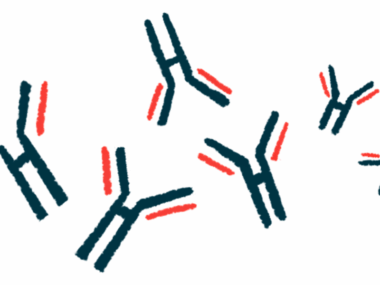Topline buntanetap trial data in early-stage Parkinson’s due ‘soon’
Making sure the study produced 'clean data' cited as reason for delay
Written by |

Topline data from a Phase 3 clinical trial of buntanetap in early-stage Parkinson’s disease patients is expected soon, according to Annovis Bio, the therapy’s developer.
Initially planned for the end of January, ongoing analysis to ensure “clean data” that are accurate and reliable was cited as the reason for the delay.
“During this period, the Company remains blinded to the data, and the statistical analysis is yet to be performed. We understand your potential frustration with the required extension, and we want to stress that our focus is on delivering results that are trustworthy. We are working hard to provide them to you very soon,” Maria Maccecchini, PhD, Annovis CEO, said in a company press release. “We acknowledge the ongoing anticipation for the Phase [3] data announcement initially set for the end of January 2024. However, the delivery of the cleaned data is now delayed as we work to provide the most accurate results by ensuring the process is conducted diligently and thoroughly.”
Maccecchini is also the company’s founder and president.
What is buntanetap expected to do?
Buntanetap is an oral therapy candidate designed to reduce levels of proteins that make up the toxic clumps in Parkinson’s, such as alpha-synuclein, and in Alzheimer’s disease. This is achieved by blocking translation, the process whereby cells “read” the DNA instruction to build proteins.
The therapy is expected to boost synaptic transmission and axonal transport, key processes that forms the basis of communication between nerve cells.
In the Phase 3 trial, 523 early-stage Parkinson’s patients, ages 40-85, were randomly assigned to buntanetap, delivered as one capsule of either 10 or 20 mg, or a placebo, once a day for six months. The treatment was given on top of the patients’ standard of care.
A total of 471 patients across 67 clinical sites completed the study, with a dropout rate (9.9%) below the initial projections. This rate is the result of buntanetap’s safety profile and tolerability, and the convenience of one pill a day, according to Annovis.
In a previous Phase 1/2 trial (NCT04524351), a daily buntanetap for 25 days safely improved the cognitive and motor skills of people with Parkinson’s disease. This was accompanied by a significant reduction in the blood levels of the TDP-43 protein, another protein that can give rise to the toxic clumps that cause the death of nerve cells.
Plans are underway for a similar Phase 3 trial in late-stage Parkinson’s patients, following positive feedback from the U.S. Food and Drug Administration.



